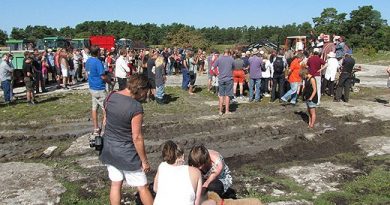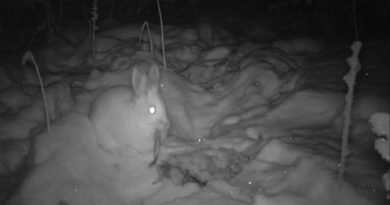Northern activists from Canada arrive at Durban climate talks
 Canada’s Northerners are already witnessing the effects of climate change and world leaders should heed their warnings, says a group of representatives from the territories visiting Durban.
Canada’s Northerners are already witnessing the effects of climate change and world leaders should heed their warnings, says a group of representatives from the territories visiting Durban.
The latest United Nations convention on climate change, or COP17, is being hosted by the South African city, and Daniel Daniel T’seleie of the Dene nation is one of the activists from Northern Canada in attendance.
T’seleie, who is part of the Canadian youth delegation, says indigenous people are the first to see the effects of a warming planet, and that scientists should pay more attention to what they have to say.
“We know that as indigenous people we have a lot of knowledge that is relevant to ecosystem, and that knowledge needs to be used when working on climate change adaptation,” T’seleie told CBC News in a Skype interview.
T’seleie plans to liase with other youth and indigenous peoples from around the world at the conference.
John Streicker is also attending the conference in Durban in his capacity as a Yukon-based environmental scientist and national president of the Green Party of Canada.
Streicker said he’s going “to act as a witness and to bring back the message of what Canada is saying so that we all understand where the Canadian government is at.”
He also hopes to “work to try and close the gap between what the scientific community says we need to do in order to have a safe future, and what our government has been willing to negotiate.”
Activists hope to call attention to Northerners’ climate concerns
Meanwhile, back in Canada’s Northwest Territories, Hunter Fred Sangris is paying close attention to the thickness of ice along Prosperous Lake.
He worries rising temperatures will affect his hunting grounds.
“It’s getting warmer and warmer and warmer. I used to come 25 years ago driving sled dogs . . . and it was cold, very cold,” said Sangris.
The creeks near the Kam Lake area, where Sangris used to hunt, are normally frozen by this time of year.
He hopes people like T’seleie can help voice his concerns in Durban, as the Minister of Environment and Natural Resources has decided not to attend.
Northwest Territories MLA Michael Miltenberger expressed doubts that climate conferences would make any difference, although he did send a representative in his stead.
“I didn’t see much value for us to go all that way, where we have things to do here,” said Miltenberger. “It’s a national government issue at that level.”
The activists are more optimistic, and hope to push the Canadian government on issues like sticking to the Kyoto accord. “
This government ought to live up to that,” said Bill Erasmus, the national chief of the Dene Nation. “We’ll be putting pressure on them to do that.”
Environment Minister Peter Kent still refuses to confirm reports Canada will withdraw from the Kyoto Accord.



